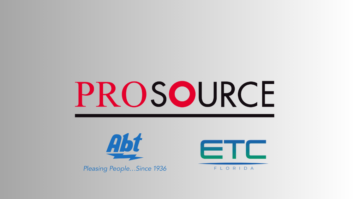Ann Arbor, Mich. – Online
and specialty merchants outpaced the overall retail industry in delivering
customer satisfaction, a new report shows, with Amazon besting them all.
The annual study by the
American Customer Satisfaction Index (ACSI), which gauges the shopping
experience on a 0 to 100 scale, shows that consumer satisfaction with retailers
fell 0.5 percent to 75.3, the biggest drop in two years. Much of the decline
was centered on gasoline service stations, reflecting the rising price of oil.
E-tail once again led the rankings with an ACSI score of 80, despite
a 3.6 percent drop that was mostly
concentrated in smaller companies. Amazon and Netflix swapped places for the
lead in e-tail, with Amazon rising 1 percent to 87 and Neflix dropping 1
percent to 86. Amazon’s score is the highest for any retailer, whether online or
brick-and-mortar. Newegg (down 2 percent to 84) and Overstock ( up 1 percent to
83) earned the next highest scores. eBay made a significant improvement, up 3
percent to 81, but not enough to move ahead of any of the larger competitors.
“Even with the decline,
customer satisfaction with Internet shopping remains much higher than with
in-store shopping, and online sales continue to grow at a faster pace too,”
said ACSI founder Claes Fornell. “The large drop for smaller online retailers
suggests that size does matter when it comes to the ability to price, make
concessions on shipping costs, and create attractive sales promotions.”
Within the brick-and-mortar sector, continued aggressive
discounting kept specialty retailers and department/discount stores trending
upward for a third straight year. Both channels improved by 1.3 percent to earn
respective ACSI scores of 78 and 76.
Barnes & Noble lead
the specialty retail sector for a fourth straight year, with a slight 2 percent
drop to 82, followed closely by Borders (down 1 percent to 80), which is
reportedly mulling a Chapter 11 filing. Best Buy rose 4 percent to 77, which
was still below the sector average.
Among office supply
chains, Staples improved 5 percent and Office Depot vaulted 7 percent, both to
all-time high ACSI scores of 81. A stronger emphasis on customer service and
improved rewards programs helped lift both retailers. In contrast, OfficeMax
retreated 4 percent to 74. Customers see value in OfficeMax prices, but
gave low marks to service that failed to keep up with their expectations, ACSI
said.
Costco led the discount chains with a 1 percent gain to 82, while wholesale club competitor Sam’s Club
slipped 1 percent to 78. Target
slipped 3 percent to tie with Sam’s Club at 78, which remains above the
industry average. Sears rose 1 percent to 75, and Walmart improved 3 percent to
73, but continues to anchor the bottom of the discount sector.
Other gainers included Home
Depot (up 4 percent to 75). The building supply chain improved for a third
straight year, further closing the gap with rival Lowe’s (down 3 percent to
77).
“Even though the economic
recovery has gained a bit more momentum as of late, it remains sluggish,”
Fornell observed. “With low job creation and deteriorating customer
satisfaction, the uncertainty of what will happen to consumer demand is not
going away.”
The ACSI index, developed at the University of Michigan, measures
such criteria as perceived quality and value, and customer expectations,
complaints and loyalty. The research group finds that stock prices of companies
with high ACSI scores tend to do better than those of companies with low
scores.













